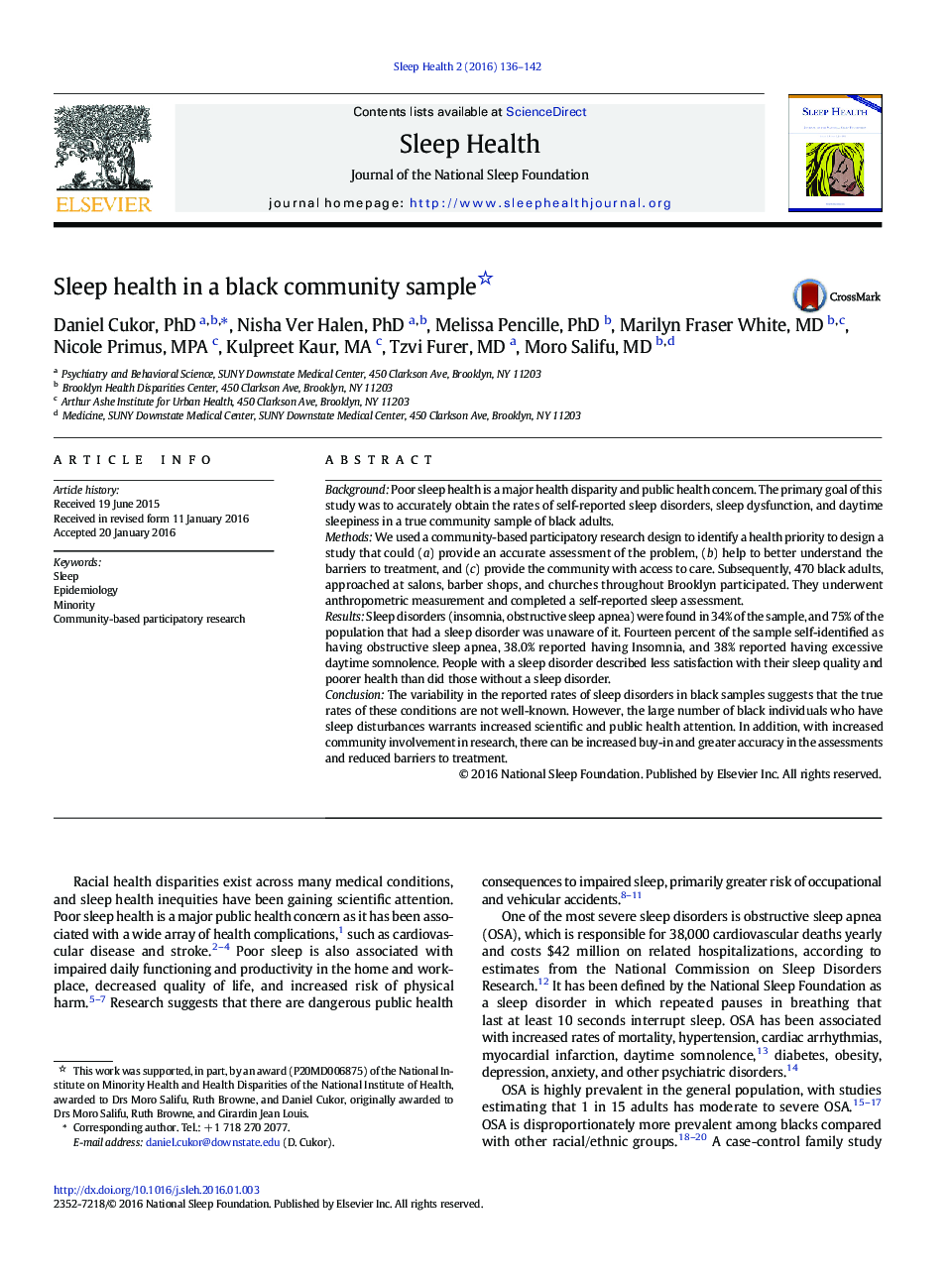| Article ID | Journal | Published Year | Pages | File Type |
|---|---|---|---|---|
| 916248 | Sleep Health | 2016 | 7 Pages |
BackgroundPoor sleep health is a major health disparity and public health concern. The primary goal of this study was to accurately obtain the rates of self-reported sleep disorders, sleep dysfunction, and daytime sleepiness in a true community sample of black adults.MethodsWe used a community-based participatory research design to identify a health priority to design a study that could (a) provide an accurate assessment of the problem, (b) help to better understand the barriers to treatment, and (c) provide the community with access to care. Subsequently, 470 black adults, approached at salons, barber shops, and churches throughout Brooklyn participated. They underwent anthropometric measurement and completed a self-reported sleep assessment.ResultsSleep disorders (insomnia, obstructive sleep apnea) were found in 34% of the sample, and 75% of the population that had a sleep disorder was unaware of it. Fourteen percent of the sample self-identified as having obstructive sleep apnea, 38.0% reported having Insomnia, and 38% reported having excessive daytime somnolence. People with a sleep disorder described less satisfaction with their sleep quality and poorer health than did those without a sleep disorder.ConclusionThe variability in the reported rates of sleep disorders in black samples suggests that the true rates of these conditions are not well-known. However, the large number of black individuals who have sleep disturbances warrants increased scientific and public health attention. In addition, with increased community involvement in research, there can be increased buy-in and greater accuracy in the assessments and reduced barriers to treatment.
